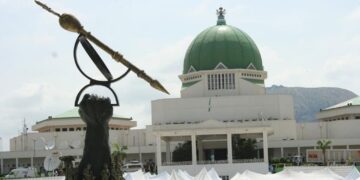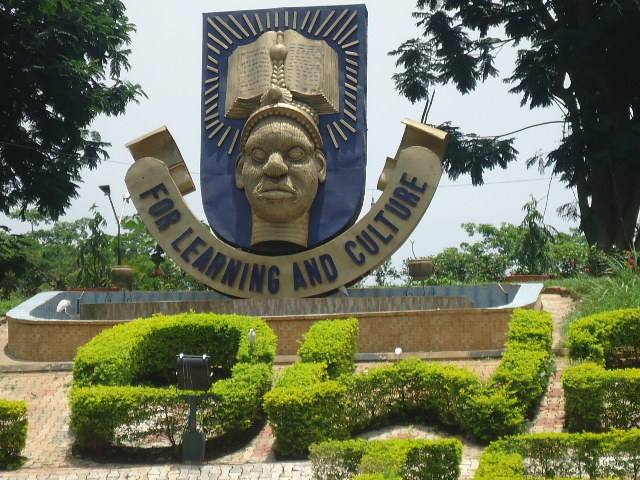[ad_1]
NO issue calls for more serious and deeper discussion among Africans than the question of leadership. Prior to and since independence, Africans from all walks of life have, as a result of their individual and collective experiences and concern made the issue of country leadership a hot topic of debate
I believe that no question calls for more serious and deeperdiscussion in the history of Africamore than the question of leadership. Prior to and since independence, Nigerians from all walks of life have as a result of their individual and collective experiences made the issue of the country’s leadership a hot topic of debate in such settings as Beer Parlours, Sport stadiums, Buses, Classrooms, Board Rooms and Offices. Virtually all the nation’s problems have been blamed on poor leadership. Concerned and patriotic Nigerians have canvassed for improved leadership. Because of the centrality of the concept of leadership and its challenges, I will not limit the discourse to Nigeria alone. I will extend my examination of leadership challenges to sub-Sahara Africa.
Sub-Saharan Africa, the land of the Blacks
Sub-Saharan Africa is the area of the continent of Africa that lies South of the Sahara. The Region is often referred to as Black Africa, in reference to its numerous black populations. Commentators in Arabic in the medieval period used the general term ‘Bilad- the Land of the Black’ denoting the vast expanse of land from West Africa to Central Africa.
That Sub-Sahara Africa is rich in natural resources is without question. Most Sub-Sahara African countries are blessed with natural resources. Countries such as Nigeria, Gabon, Equatorial Guinea and Angola are major oil exporters. Other countries such as Sierra Leone and Congo are blessed with diamonds and other minerals. Virtually every kind of climate can be found in Sub-Sahara Africa: substantial rain forests and lowlands. The great Rivers; the Nile, Niger, Congo, the Zambezi and Limpopo are wonders to behold. Sub-Saharan Africa is indeed a beautiful sub-continent. However, despite its riches and potentials, Sub-Sahara Africa is a troubled Region. Its earth has been scorched by the heat of many battles fought for the control of her resources. Over the centuries, the Region has been explored and exploited firstly by the Colonialists and of recent by Multinationals whose activities in the Oil Fields of many countries have made instant billionaires of many Europeans. The exploitation of the Region began centuries ago with the trans-Atlantic slave trade whereby millions of the inhabitantswere forcibly taken from their homes and loved ones and sold away into slavery in the Americas. It is argued in some quarters that the slave trade itself accounts for some of the problems which still trouble Africa today.
After the exploitation of the people by European slave traders came the exploitation of the resources of the Region such as gold, diamond, cocoa, palm-oil, ground-nut, cotton and later oil. Countries such as Nigeria, Congo, Uganda, Rwanda, Zimbabwe Somalia, Angola, Sierra Leoneand Ethiopia have witnessed civil wars and continue to habour one form of conflict or the other. In this part of the world, the earth is red not only because nature decrees it so but because it is saturated with the blood of innocent millions who have been sacrificed in many of these needless conflicts.
But why is black Africa so troubled? Why is it that whilst countries in other continents of the world continually strive towards forward development and excellence, black countries seem irreversibly committed to backward development and self-destruction? Why are the poorest nations found on the Sub-Sahara Africa? Why is a country like Nigeria the 2nd most corrupt country in West Africa, and 34th most corrupt country in the worldaccording to Transparency International’s Corruption Perceptions Index, 2019? Why are we so troubled? Is it as some have posited attributable to the colour of our skin?
I do not believe that one needs a crystal ball to discern the answer to the above stated posers! The problem with us is that of Leadership and to some extent followership.
Many of our leaders rather than harness the resources of their countries to the overall development of their people, threw caution to the wind and on the contrary set about corruptly enriching themselves and members of their immediate family and political caucuses.
In Nigeria, oil money created a new breed of political elite which regarded power as a commodity or item that must be acquired by all means imaginable. Electoral fraud and violence are commonplace. The choice of the electorate is hardly reflected in the final outcome of polls, leading generally to voter apathy. This has had a ripple effect on the bid of the country to achieve and sustain the best of democratic practices and standards. On the international front, the recklessness or lack of self control by leaders have cost thousands of lives. In the last decade, a former President in the Sub-SaharaRegion was found guilty by the International Criminal Tribunal for the crimes he committed in Sierra Leone. Specifically, he was found to have aided some rebel forces during the Sierra Leone conflict in committing war crimes in exchange for diamonds. Whilst it is true that official corruption and political conflicts are not limited to black Africa, it cannot be denied that the level of these two anomalies and their effects are most profound in black Africa.
In a particular oil-rich West African country, the son of the President, who incidentally was being groomed by his father as his successor, is reportedly one of the wealthiest individuals in the country. This gentleman who has no visible or recognizable source of income continued to astonish investigators in some Western countries with his lavish display of ill-acquired wealth. Yet citizens of his countrylack some of the most basic amenities of life such as pipe borne water, electricity, motorable roads, employment and health care.
On the home front the news of the conviction, in England of a former Nigerian Governor for money laundering and other related charges, enjoyed much prominence in the media here in Nigeria. Virtually all newspapers displayed pictures of mansions and vehicles allegedly acquired by the Governor with funds looted from the Treasury of his state.
In his write-up Stephanie Sehoppert on “Most Corrupt African Dictator in Modern History”said: “When it comes to Africamany African states can be recognized as having some of the worst leaders the world has ever seen. African dictators can be some of the richest people in the world and lead a country filled with the poorest. They can kill and starve their people with impunity while lining their own pockets. They treat the land and lives of millions as their own personal playgrounds, making people work to increase their leaders’ fortune while facing brutal reprisals if they don’t work”.
They include:
- Francisco Macias Nquema of Equitorial Guinea
- General Sani Abacha of Nigeria
- Robert Mugabe of Zimbabwe
- Tedodoro Obiang Nguema Mbasogo of Equitarial New Guinea
- Omar Al-Bashir of Sudan
- General Idi Amin Dada of Uganda
- Jose Eduardo Dos Santos of Angola
- Idriss Deby of Chad
- Charles Taylor of Liberia
- Mobutu Sese Seko of the Democratic Republic of Congo
Unfortunately, this list is far from comprehensive as there are many other African leaders that can be considered just as bad or worse, depending on your criteria.
Many of these dictators are in power due to military coups and some continued to stay in power due to the proxy wars of the cold war. Even as the outright corruption was obvious, inflation skyrocketed and humanitarian groups were unable to function. These leaders were able to stay in power due to the brutal enforcement of their regime.
Without doubt, many of the ills stated above are not entirely unique to sub-SaharaRegion. Some other continents have had cases of corrupt and despotic leaders. However, what is unique to Black Africa is our seeming acceptance of the status quo and our reluctance and aversion to positive change.
I ask myself: Is Black Africa what it is today because it is populated by we black Africans?.
One person who shared this view was Lord Fredrick Lugard who in his service of the British Empire served in many Sub-Saharan African countries including Nigeria and Uganda. His decades of service brought him into close quarters with Africans in the Sub-SaharaRegion. This afforded him the opportunity to study the Black Africans at close quarters. He summarised his observations in his Book “The Dual Mandate” published in 1922 where he stated as follows:
“In character and temperament, the typical African of this race-type is a happy, thriftless, excitable person. Lacking in self control, discipline and foresight. Naturally courageous, and naturally courteous and polite, full of personal vanity, with little sense of veracity, fond of music and loving weapons as an oriental loves jewelry. His thoughts are concentrated on the events and feelings of the moment, and he suffers little from the apprehension for the future, or grief for the past. His mind is far nearer to the animal world than that of the European or Asiatic, and exhibits something of the animal’s placidity and want of desire to rise beyond the state he has reached. Through the ages the African appears to have evolved no organized religious creed, and though some tribes appear to believe in a deity, the religious sense seldom rises above pantheistic animalism and seems more often to take the form of a vague dread of the supernatural. He lacks the power of organization, and is conspicuously deficient in the management and control alike of men or business. He loves the display of power, but fails to realize its responsibility…he will work hard with a less incentive than most races. He has the courage of the fighting animal, an instinct rather than a moral virtue… In brief, the virtues and defects of this race-type are those of attractive children, whose confidence when it is won is given ungrudgingly as to an older and wiser superior and without envy… Perhaps the two traits which have impressed me as those most characteristic of the African native are his lack of apprehension and his lack of ability to visualize the future.”
To be continued…..
Please send your comments and suggestions to [email protected]
[ad_2]






